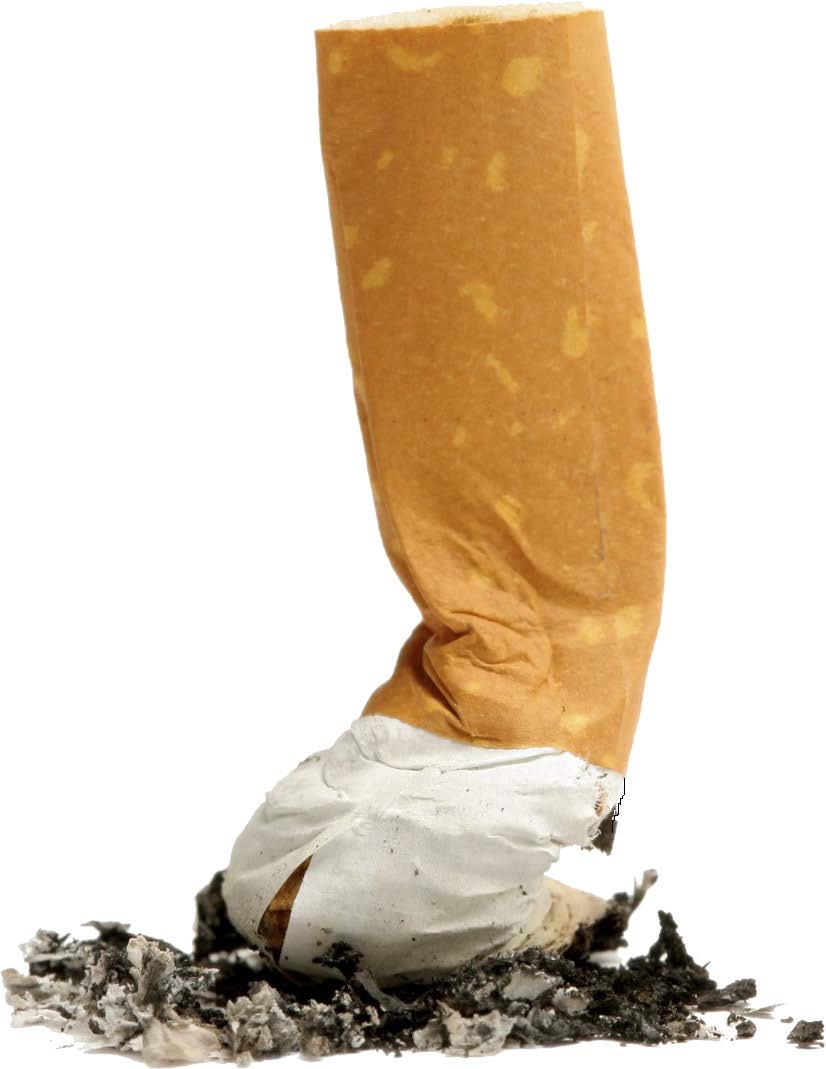Students encouraged to stop smoking

 The American Cancer Society is marking the 37th Great American Smokeout Nov. 15 by encouraging smokers to use the date to make a plan to quit.
The American Cancer Society is marking the 37th Great American Smokeout Nov. 15 by encouraging smokers to use the date to make a plan to quit.
American Cancer Society Local Coalition Coordinator Paola Klein said by doing so, smokers will be taking an important step toward a healthier life, one that can lead to reducing cancer risk.
“Oklahoma’s American Cancer Society is partnering with UMB Bank for events from 10 a.m. to 2 p.m. Nov. 15, at two UMB Bank locations in the Stockyards and downtown,” Klein said.
Facts about smoking
• Cigarette smoking has been identified as the most important source of preventable morbidity and premature mortality in the United States and the world.
• Smoking-related diseases cause an estimated 440,000 American deaths each year.
• Smoking costs the U.S. more than $150 billion annually in health care costs.
• A 2004 Study by the CDC’s National Center for Chronic Disease Prevention and Health Promotion found that cigarette smoke contains more than 4,800 chemicals, 69 of which are known to cause cancer.
• Women account for 39 percent of all smoking deaths.
• Each day 3,000 children smoke their first cigarette.
• At least three million adolescents are smokers.
• Tobacco use primarily begins in adolescence, typically by age 16.
• Almost all first use occurs before high school graduation.
• 20 percent of American teens smoke.
• Roughly six million teens in the U.S. today smoke despite the knowledge that it is addictive and leads to disease.
• Of every 100,000 15-year-old smokers, tobacco will prematurely kill at least 20,000 before the age of 70.
• Of the 3,000 teens who started smoking today, nearly 1,000 will eventually die as a result from smoking.
• In earlier times, tobacco was called herba panacea — meaning cure-all herb. Some people even believed that smoking cleaned out the lungs.
• Several countries outlawed tobacco use in the 1600s. In Turkey during that period, tobacco users could be tortured or killed. In China, a person caught with tobacco might be beheaded. In Russia, tobacco users who were caught a second time were killed.
• During World War I and World War II, soldiers were given cigarettes as part of their rations.
• 3,000 adults die from exposure to second-hand smoke every year.
—www.smoking-facts.net
People can stop by to drop off their cigarettes and pledge to quit, Klein said.
Everyone who does this can sign up to win either a 37-piece tool kit from Home Depot which represents their “tools to quit,” or a chance at one of two turkeys for Thanksgiving dinner.
At both locations there will be a free hot dog lunch and educational booths where ACS representatives will be giving out quit kits, Klein said.
Although OCCC will not host anything for the Smoke Out, the staff in the Student Support Services and Student Life offices are always available to help.
Two counselors on campus have been trained to work with students, by the American Lung Association, said Learning Support Specialist Mary Turner.
“Erin Logan and I did go through that training about a year and a half ago or so.
“Students who want to come in and work with us one-on-one, we certainly can arrange that … [for those who have] some difficulty or want to know how to get started.”
Turner said OCCC offers smoking cessation classes to groups of individuals which include eight units over seven weeks.
“In addition, we put out information about the 1-800- QUIT, which is a very helpful tool because you can get your own quit coach,” she said.
“So if you’re feeling that temptation or really having a hard time, you know there’s somebody who is just a phone call away who can kind of talk you through things.”
The entire OCCC campus has been tobacco free since Aug. 1, 2011.
“Tobacco free addresses not just smoking tobacco, but any tobacco use,” Turner said.
“Its just as harmful to intake it in one way as it is another.
“We just encourage people who are wanting to quit to find the resources and do so.”
Tobacco use remains the single largest preventable cause of disease and premature death in the U.S., yet more than 45 million Americans still smoke cigarettes, Klein said. However, more than half of these smokers have attempted to quit for at least one day in the past year.
As of 2010, there also were 13.2 million cigar smokers in the U.S., and 2.2 million who smoke tobacco in pipes.
Quitting is hard but by receiving help, chances of success increase, Klein said.
The American Cancer Society offers the steps it takes to quit smoking, and provides the resources and support that can increase chances of quitting successfully.
To learn about the available tools, call the American Cancer Society at 1-800-227-2345 or visit www. cancer.org/healthy/stayawayfromtobacco/greatamericansmokeout/index.
To contact Turner, visit the Student Support Services office located on the first floor of the Main Building, call 405-682-7520, or email her at mturner@occc.edu.
To contact Sarah Hussain, email editor@occc.edu.